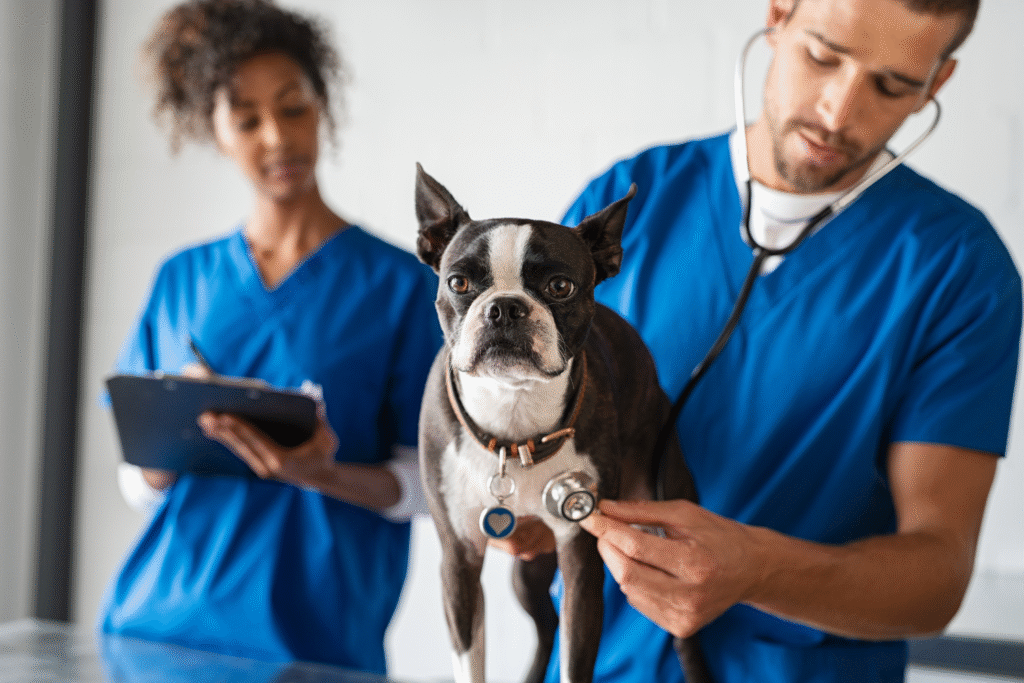Your next moves could determine whether you face lawsuits or criminal charges.

The moment your dog’s teeth make contact with human skin, your life changes forever. Legal nightmares, financial ruin, and the potential loss of your beloved pet suddenly become very real possibilities that most dog owners never see coming.
Every year, over 4.5 million Americans suffer dog bites, and many of those cases end up in courtrooms where owners face devastating consequences for failing to handle the immediate aftermath properly. The decisions you make in the first few minutes and hours after a bite incident will determine whether you emerge from this crisis intact or watch everything unravel.
1. Immediate medical attention comes before everything else, including your own panic.

Getting the bite victim proper medical care is your absolute first priority, even if the wound appears minor or the person claims they’re fine. Dog bites can cause serious infections, nerve damage, and hidden injuries that aren’t immediately visible but can become life-threatening without prompt treatment by medical professionals who understand bite wound complications.
According to the American Medical Association, even small puncture wounds from dog teeth can introduce dangerous bacteria deep into tissue where standard first aid cannot reach. Your willingness to ensure proper medical care happens immediately not only protects the victim but also demonstrates responsibility that could significantly impact any legal proceedings that follow this incident.
2. Document everything with photos and detailed notes while memories remain fresh.

Take comprehensive photographs of the bite scene, the victim’s injuries, your dog’s condition, and any relevant environmental factors that might have contributed to the incident before details fade or evidence disappears. Memory becomes unreliable under stress, so written documentation of exactly what happened, who was present, and what circumstances led to the bite becomes crucial for insurance claims and potential legal defense.
Emergency room staff will also document the victim’s injuries thoroughly, but having your own photographic evidence helps establish an accurate timeline and context for the incident, as reported by the National Canine Research Council. This documentation proves invaluable when insurance adjusters and attorneys begin investigating the circumstances surrounding the bite incident weeks or months later.
3. Contact your homeowner’s or renter’s insurance company within 24 hours of the incident.

Most people don’t realize that standard homeowner’s and renter’s insurance policies typically cover dog bite liability, but these policies require prompt notification of incidents to maintain coverage for medical expenses and potential lawsuits. Waiting too long to report the bite can result in your insurance company denying coverage entirely, leaving you personally liable for potentially massive medical bills and legal settlements.
Insurance companies need immediate notification to begin their investigation process and preserve evidence while it’s still available, according to the Insurance Information Institute. Your insurance adjuster will guide you through the claims process and may provide legal representation if the victim decides to sue, but only if you’ve reported the incident within the timeframes specified in your policy documents.
4. Never admit fault or make statements about what you think caused the bite.

Anything you say immediately after the incident can be used against you in legal proceedings, so stick to factual observations rather than speculation about why your dog bit someone. Even well-meaning apologies can be interpreted as admissions of guilt that complicate your legal defense and insurance coverage down the road.
Law enforcement officers, insurance adjusters, and attorneys will conduct their own investigations to determine liability, so your job is to provide accurate information about what happened without offering opinions about fault or responsibility. The stress and shock of a bite incident can lead to statements you’ll later regret, so keeping your responses limited to basic facts protects your interests while still being cooperative with authorities.
5. Secure your dog immediately to prevent additional incidents during the chaos.

The aftermath of a bite incident often involves multiple people, emergency responders, and high stress levels that can trigger additional aggressive behavior from an already agitated dog. Getting your pet safely contained and away from the scene protects everyone involved while allowing medical personnel and law enforcement to do their jobs without worrying about further attacks.
This immediate action also demonstrates responsible ownership and concern for public safety, factors that authorities and courts consider when determining consequences for the bite incident. A dog that bites once during a chaotic situation might bite again if left in an environment with strangers, loud noises, and emergency activity that continues to stress the animal.
6. Gather contact information from all witnesses before they disappear from the scene.

Witness statements can make or break your case if the bite incident leads to legal action, so collecting names and contact information from everyone who saw what happened becomes critical for your defense. People tend to leave quickly after emergency situations, so getting their information while they’re still present ensures you can reach them later if needed.
Witnesses can provide crucial testimony about the victim’s behavior, your dog’s demeanor before the incident, and environmental factors that might have contributed to the bite. Their statements can contradict claims made by the victim or support your version of events when insurance companies and attorneys begin building their cases months after the incident occurred.
7. Veterinary examination reveals whether your dog was acting normally or showing signs of illness.

Having your dog examined by a veterinarian within 24 hours of the bite incident can provide important medical evidence about your pet’s health and mental state at the time of the attack. Pain, illness, or neurological conditions can cause normally gentle dogs to bite, and this medical information becomes relevant for both legal defense and determining appropriate consequences.
The veterinary examination also establishes a medical record that shows you’re a responsible owner concerned about your dog’s wellbeing and public safety. This proactive step demonstrates that you take the incident seriously and are working to understand what might have caused your typically well-behaved pet to act aggressively toward another person.
8. Legal consultation becomes necessary when facing potential criminal charges or major lawsuits.

Dog bite cases can result in both criminal charges and civil lawsuits that carry serious consequences including fines, mandatory euthanasia orders, and financial judgments that can destroy your economic future. An attorney experienced in dog bite law can navigate the complex legal landscape and protect your rights throughout the process.
Many dog owners try to handle bite incidents without legal representation, only to discover too late that they’ve made mistakes that compromise their defense or agreed to settlements that seemed reasonable but were actually inadequate. The legal system treats dog bites seriously, and having professional representation from the beginning gives you the best chance of minimizing long-term consequences.
9. Quarantine requirements vary by location but violating them brings additional criminal charges.

Most jurisdictions require dogs involved in bite incidents to be quarantined for observation, either at home or at a veterinary facility, to ensure they’re not showing signs of rabies or other diseases that could affect the victim’s treatment. Failing to comply with quarantine orders can result in additional criminal charges and complications for your case.
The quarantine period gives authorities time to investigate the incident while ensuring public safety, but it also provides an opportunity for you to demonstrate compliance with legal requirements and responsible pet ownership. Understanding your local quarantine laws and following them exactly shows authorities and courts that you’re taking the situation seriously and working within the legal system.
10. Your dog’s future depends entirely on how professionally you handle this crisis right now.

The decisions you make in the immediate aftermath of a bite incident will determine whether your dog faces euthanasia, permanent restrictions, or gets a second chance to remain part of your family. Courts and animal control agencies consider owner response and responsibility when making these life-or-death determinations about dangerous dogs.
Handling the crisis professionally, ensuring proper medical care for the victim, cooperating with authorities, and taking responsibility for prevention measures demonstrates the kind of ownership that courts prefer to see in dog bite cases. Your actions right now are writing the story that will be told in courtrooms and administrative hearings where your pet’s life hangs in the balance, making every decision crucial for both your futures.
